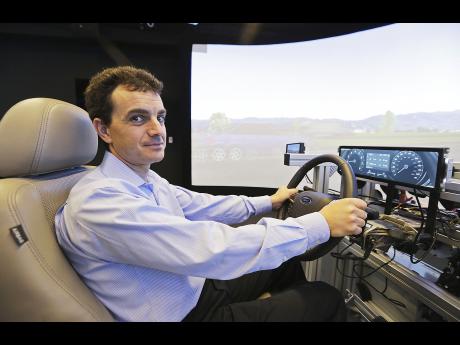Auto, tech companies move closer together
PALO ALTO, California (AP):
The office has all the trappings of a high-tech start-up. There's a giant beanbag in the foyer and erasable whiteboard walls for brainstorming. Someone's pet dog lounges happily on the sunny balcony.
Welcome to the Palo Alto, home of the Ford Motor Co., six miles from the headquarters of Google.
Meanwhile, in a squat, industrial building in suburban Detroit, a short drive from Ford's headquarters, workers are busy building a small fleet of driverless cars.
The company behind them? Google.
The convergence of cars and computers is blurring the traditional geographical boundaries of both industries. Silicon Valley is dotted with research labs opened by automakers and suppliers, who are racing to develop high-tech infotainment systems and autonomous cars. Tech companies - looking to grow and sensing an industry that's ripe for disruption - are heading to Detroit to better understand the auto industry and get their software embedded into cars.
The result is both heated competition and unprecedented co-operation between two industries that rarely spoke to each other five years ago.
"It's a cross-pollination. We're educating both sides," says Niall Berkerey, who runs the Detroit office of Telenav, a Sunnyvale, California-based firm that makes navigation software.
There's also plenty of employee poaching. Apple recently hired Fiat Chrysler's former quality chief. Ride-sharing service Uber snagged 40 researchers and scientists from Carnegie Mellon's Pittsburgh robotics lab. Tesla's head of Vehicle Development used to work at Apple.
little respect
For years, the fast-paced tech industry showed little respect for the plodding car industry. Google and Palo Alto-based Tesla, with its high-tech electric sedans, helped change that.
"People think it's shiny Silicon Valley versus grungy Detroit, but that's garbage," says Chris Urmson, who leads Google's self-driving car programme. "If you look at the complexity of a vehicle, it's an engineering marvel."
Dragos Maciuca, a former Apple engineer, who is now the technical director of Ford's Palo Alto research lab, says he is seeing a new excitement about the auto industry in Silicon Valley. For one thing, cars provide a palpable sense of accomplishment for software engineers.
"If you work at Google or Yahoo, it's hard to point out, 'well, I wrote that piece of code'. It's really hard to be excited about it, or show your kids," Maciuca he says. "In the auto industry, you can go, 'see that button? The stuff that's behind it. I worked on that.'"
But cocky tech companies have had to adapt to the tough standards of the auto industry, which requires technology to work perfectly for years in all kinds of conditions. Maciuca spends much of his time educating software and app developers about the industry's needs.
"Silicon Valley goes toward this model of a minimum viable product. It's easy to throw things out there and try them and see if they work," Maciuca says. "We can't do that."
Santa Clara, California-based Nvidia was best known for making chips for computer games before it got into the car business. Now it makes the computer processors that power Tesla's 17-inch touchscreen dashboard and Audi's experimental self-driving cars, among other products. It had to develop new manufacturing techniques and higher levels of certification for the auto business, such as tests to make sure its computer chips would still work in sub-zero temperatures, says Danny Shapiro, Nvidia's senior director of Automotives.
For their part, the automakers are learning that rolling out cars that remain static for years until the next model comes out is no longer practical. At the insistence of tech companies such as Telenav and Nvidia, they are learning to make cars with navigation, infotainment and other features that can be constantly updated. Mercedes-Benz, Tesla, Toyota, BMW, and others can now update vehicle software wirelessly to fix problems or add more capability.
Shapiro says the cost-conscious auto industry has had to learn to spend a little more - maybe US$10 to US$20 per car - on computer hardware. Automakers would often go with the cheapest option but then spend even more fixing bugs, or be forced to replace processors that didn't have enough power to add updates.
Nvidia now has eight permanent engineers at various automakers in Michigan.
"We've helped them adopt more of a computer-industry mindset, which is not to reinvent what they're doing every five to seven years," Shapiro says.


